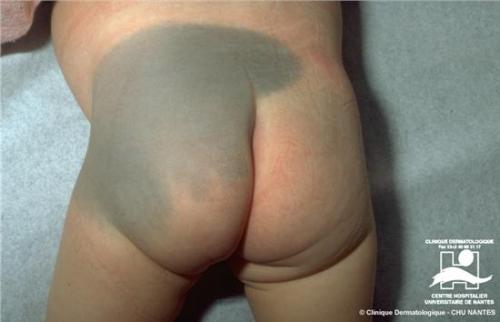So the ball is rolling on our second adoption.
Is it easier the second time around? Yes and no. We are doing a different adoption, although the child might come from the UN Unaccompanied Minor Refugee program, it is processed as a foster care adoption.
For Gabika's adoption, I felt righteously indignant when numerous phone calls and e-mails were not returned by the home study agency- after all, we were paying them a lot of money. Since this adoption is processed through foster care the fees associated are significantly lower and the social worker isn't working for us, but rather for the agency the social worker has little incentive to cooperate. (One might say that finding a child a loving, permanent home is an incentive...)
"Patience is a virtue" is a mantra I frequently repeat to Gabika, now I must live by as well. After the initial meeting, the social worker asked us to meet him at their office at 8am later that week to pick up our packet of paperwork. We showed up to a locked building- literally not one employee had shown up to work that morning. After numerous phone calls, we were able to get him on the line. Very apologetic, he said he could drop the packet off at our house later that week. 2 weeks later, still no packet- he e-mails me a packet. Why we had to take off work and school to go to the office in the first place if the packet could simply be e-mailed is a question better left unasked. That the packet was incomplete is a whole other issue.
Yes, the ball is rolling on our second adoption, but it might be rolling up hill.
Monday, March 3, 2014
Bulgarian Adoptee Needs Kidney Transplant
Gavin, a 7 year old, adopted to the United States by a military family needs a kidney transplant.
Click here to see his interview on NBC.
Gabika's caseworker has offered to donate her kidney, since neither adoptive parent was a match, but unfortunately she was not a match either. Please go to their Go Fund Me to contribute, they are only $500 short of their goal.
Gavin's story, though not atypical of Eastern European orphans, is difficult to imagine. This little guy was in a crumbling orphanage where workers didn't even realize he was deaf, among other medical issues. He was identified for international adoption and placed on Reese's Rainbow. He was adopted by an American military family when he was six years old.
Gavin- mnogo kusmet, lybov and nadezheda! We hope you find a donor and have a happy, fulfilling life!
Click here to see his interview on NBC.
Gabika's caseworker has offered to donate her kidney, since neither adoptive parent was a match, but unfortunately she was not a match either. Please go to their Go Fund Me to contribute, they are only $500 short of their goal.
Gavin's story, though not atypical of Eastern European orphans, is difficult to imagine. This little guy was in a crumbling orphanage where workers didn't even realize he was deaf, among other medical issues. He was identified for international adoption and placed on Reese's Rainbow. He was adopted by an American military family when he was six years old.
Gavin- mnogo kusmet, lybov and nadezheda! We hope you find a donor and have a happy, fulfilling life!
Sunday, March 2, 2014
The Mongolian Spot
It's funny that something so common place could be so completely unknown to so many Americans.
Gabika has a blue tinged birth mark on her lower back. These are known as Mongolian spots and are very common in non-white children. In fact, according to the UK's National Health Service:
"Mongolian blue spots are rare in children of white European background, but very common in children of African, Middle Eastern, Mediterranean or Asian background. As many as three-quarters of children from these ethnic groups are born with Mongolian blue spots." The typically develop on the baby's lumbar region or their bottom but disappear on their own by the time the child is school aged. It can be very blue- like this baby
Or more similiar to the baby's skin tone, like Gabika's:
It's interesting that nearly 75% of non-white babies are born with a Mongolian spot, but that they are still mistaken for a bruise many people who work with children, Gabika's teacher sent her to the nurse because she was concerned about the mark, luckily the nurse is not white and recognized the mark right away. There is little awareness of these spots by Caucasian Americans, and the color and location would indicate bruising and abuse.
The children in the school are predominately not white, so I am glad that the teacher is aware of these birthmarks. But as a former employee of this school district, I am glad to see that principals and social workers are now taking teacher's concerns about the safety of their students' home circumstances more seriously. Even if they have to ruffle a few feathers.
Subscribe to:
Posts (Atom)
